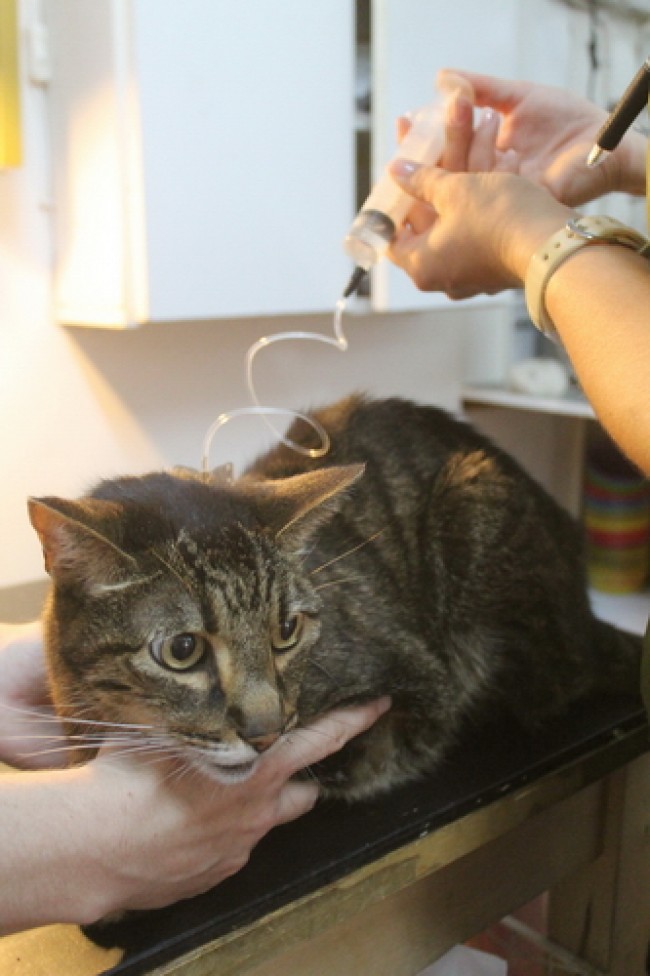and Dubai International Airport
and Dubai International Airport

We don't like to beat around the bush, or the bodily organs, when it comes to our precious pets. Kidney (renal) failure is something you should know about because there is gradual loss of kidney function in all pets (and people) as they age. It's not an awesome subject, but second to arthritis and cancer in pets, chronic renal failure is the most common illness in elderly cats and dogs.
Knowledge is Power
Chronic Renal Failure (CRF): This is the most common type of kidney disease found in pets and your growing-old-gracefully tabby is most at risk. It can become a problem over time and homeostasis (maintaining internal stability) makes it difficult to (self) diagnose. That's why [important notice ahead] any pet over the age of 7 needs to have two annual blood and urine tests a year, so CRF is detected and we can keep the skip in Skippy's step with early treatment if necessary.
Acute Renal Failure (ARF): Less common. More serious. ARF is when there is a rapid decline in kidney function because of infection or poisoning. Treatment is usually with fluids via a drip, but, sorry to say, prognosis is not good.
Causes
The kidneys filter the blood to keep the body properly hydrated and remove potentially harmful toxins. So, as you would imagine, they have a lot of traffic passing through. This means there are many different reasons CKD develops; the most common include:
Acute kidney disease (AKD) happens when something decreases blood flow through the kidney ~ this can be through infection or via poisoning, for example with medications or antifreeze. (We wrote a bit about poisons to watch out for in our blog Pooches & Poisons, if you want to learn more.)
Signs and Symptoms
CKD can show up quickly or not at all for months ~ tricky. (Did we mention having regular check-ups?). Here are the usual suspects when it comes to signs that Fido's kidneys may not be functioning:
Signs of AKD will be similar but more, well, acute ~ usually a quick and dramatic onset of the symptoms above. And there's really no time to "wait and see" because your most precious possession needs veterinary attention right away.
Treatment Regime
CKD can be treated but not cured. Your vet will design a regime depending on how severe the disease is, but the general big picture is to try to relieve the kidneys from all the stress they're under.
Don't Stress (Well, try not to!)
Our last word is about stress. The less of it the better. To keep your tangerine tabby's life tension-free really means that she needs a calm parent. Like any chronic disease, CKD needs careful management but also flexibility when things change. You're going to need some sturdy inner resources, so please look after yourself too!
Office Coordinators -cum- Receptionists
Animal Relocations Officers

